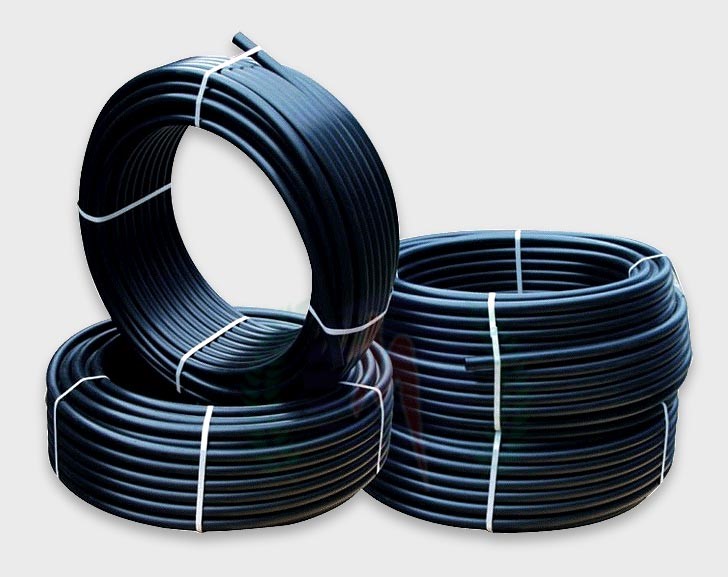How American Plastics HDPE Pipe Manufacturing Maintains Sustainability
Recognizing the Trick Conveniences of HDPE Pipe for Water and Wastewater Management
Making use of HDPE pipeline in water and wastewater administration provides various advantages that warrant consideration. Its remarkable durability and lengthy life expectancy make it a recommended choice for numerous projects. Furthermore, the material's resistance to rust and chemical damages boosts its reliability in numerous atmospheres. The benefits expand past simply longevity and resistance. hdpe pipe in stock Midland TX. Exploring its cost-effectiveness and ecological influence reveals much more engaging factors for its prevalent adoption in modern-day facilities
Extraordinary Sturdiness and Longevity

HDPE pipe stands apart for its outstanding toughness and durability, making it a recommended selection in water management systems. Built from high-density polyethylene, these pipelines can withstand considerable pressure and tension, making certain reputable performance in time. Their robust nature enables them to withstand severe environmental conditions, consisting of temperature fluctuations and dirt activities, which can cause various other products to fail.
The life expectancy of HDPE pipelines usually goes beyond 50 years, supplying a cost-effective remedy for communities and markets alike. Furthermore, the material's lightweight buildings streamline setup, reducing labor expenses and durations. This longevity lessens the need for frequent repair services or replacements, additionally enhancing its financial allure.
In water monitoring applications, the reliability of HDPE pipes suggests less interruptions and enhanced service connection, making them important to sustainable framework development. The mix of durability and durability strengthens HDPE's role as a keystone in reliable water monitoring services.

Resistance to Rust and Chemical Damages
While lots of materials catch rust and chemical damage gradually, HDPE pipelines show amazing resistance, making them ideal for various water management applications. This durability stems from the molecular framework of high-density polyethylene, which is naturally non-reactive and does not wear away like metals or deteriorate from direct exposure to harsh chemicals. Consequently, HDPE is highly effective in settings with aggressive substances, such as wastewater systems that may consist of acids, bases, and organic solvents.
Additionally, HDPE pipelines can stand up to environmental aspects such as soil level of acidity and saline problems, further enhancing their suitability for diverse applications (Pipe Supplier American Plastics Midland). Their capability to keep architectural stability with time minimizes the risk of leaks and failings, which is crucial in ensuring the safety and security and integrity of water circulation and wastewater administration systems. The resistance to deterioration and chemical damages noticeably adds to the general effectiveness and longevity of HDPE piping remedies.
Cost-Effectiveness and Economic Benefits
When considering the monetary implications of water management systems, the cost-effectiveness of HDPE pipes comes to be obvious. These pipelines supply reduced installment and upkeep prices compared to standard products like metal or concrete. Their light-weight nature simplifies transportation and setup, causing reduced labor expenses. In addition, HDPE pipelines show a lengthy life-span, often surpassing half a century, which equates to fewer replacements and lasting financial savings.
The resistance of HDPE to deterioration and chemical damages decreases the demand for expensive repairs and replacements. The pipes additionally support effective water flow, lowering power prices associated with pumping systems. By alleviating leakages and water loss, HDPE pipelines add to substantial financial advantages for districts and sectors alike. Generally, the first financial investment in HDPE piping can generate considerable monetary returns over the lifespan of the water monitoring system, making it a sensible selection for sustainable facilities development.
Ecological Sustainability and Lowered Influence

Convenience and Flexibility in Installment
As a result of their distinct homes, HDPE pipes use remarkable adaptability and versatility in setup, making them appropriate for a variety of applications. Their lightweight nature allows for less complicated handling and transportation, reducing labor prices and setup time. HDPE pipelines can be bent and shaped to fit different terrains and job requirements, which is especially helpful in challenging environments.
Furthermore, their resistance to corrosion and chemical damages permits setup in diverse settings without the demand for specialized safety finishes. The capability to fuse joints creates a constant, leak-free system, boosting the total stability and dependability of the installation. HDPE's flexibility additionally fits ground motion, reducing the threat of damages in locations susceptible to moving dirt. Generally, these features make HDPE pipes not just versatile yet likewise a recommended choice for water and wastewater monitoring systems.
Frequently Asked Inquiries
How Does HDPE Pipe Compare to PVC in Water Management Applications?
HDPE pipe offers exceptional versatility, resistance to corrosion, and sturdiness contrasted to PVC. Its lighter weight assists in less complicated installment, while its long life expectancy decreases replacement costs, making HDPE a recommended choice in water management applications.
What Is the Life-span of HDPE Water Lines Under Common Problems?
Under normal problems, HDPE pipelines can have a get more info lifespan ranging from 50 to 100 years. Their toughness and resistance to corrosion contribute to their long-lasting performance in various applications, making them a reliable option for infrastructure.
Are HDPE Pipes Recyclable After Their Life Span?
Yes, HDPE pipelines are recyclable after their life span. American Plastics HDPE Pipe for Oilfield. They can be refined and repurposed right into brand-new items, substantially reducing ecological impact and advertising sustainability within the market, making them an eco-friendly selection for piping remedies
What Is the Setup Process for HDPE Water Lines?
The installment process for HDPE pipes includes site preparation, trenching, pipe fusion or mechanical joining, backfilling, and pressure testing. Appropriate techniques guarantee a resilient and effective system for transferring water and wastewater properly.
Can HDPE Pipeline Be Utilized for Both Safe And Clean and Non-Potable Water Solutions?
Yes, HDPE pipes can be used for both potable and non-potable water systems. Their versatility, resilience, and resistance to deterioration make them ideal for different applications, making sure safe and effective transport of water in various contexts.